Related Research Articles

Emil Erich Kästner was a German writer, poet, screenwriter and satirist, known primarily for his humorous, socially astute poems and for children's books including Emil and the Detectives and The Parent Trap. He received the international Hans Christian Andersen Medal in 1960 for his autobiography Als ich ein kleiner Junge war. He was nominated for the Nobel Prize in Literature in six separate years.
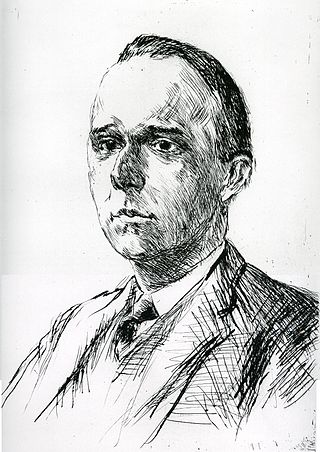
Werner Wilhelm Jaeger was a German-American classicist.

Norbert Blüm was a German politician who served as a federal legislator from North Rhine-Westphalia, chairman of the CDU North Rhine-Westphalia (1987–1999), and Minister of Labour and Social Affairs.
Noel Haviland Field was an American diplomat who was accused of being a spy for the NKVD. His name was used as a prosecuting rationale during the 1949 Rajk show trial in Hungary, as well as the 1952 Slánský show trial in Czechoslovakia. Much controversy surrounds the Field story. In 2015, the historian David Talbot reignited claims that Field was set up by Allen Dulles in order to create paranoia designed to undermine the Soviet Union.

The Formula is a 1980 mystery film directed by John G. Avildsen. It was produced and written by Steve Shagan, who adapted his own 1979 novel The Formula. It stars Marlon Brando, George C. Scott, Marthe Keller, John Gielgud, G. D. Spradlin, and Beatrice Straight.

Werner Johannes Krauss was a German stage and film actor. Krauss dominated the German stage of the early 20th century. However, his participation in the antisemitic propaganda film Jud Süß and his collaboration with the Nazis made him a controversial figure.
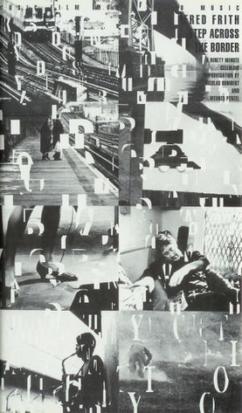
Step Across the Border is a 1990 avant-garde documentary film on English guitarist, composer and improviser Fred Frith. It was written and directed by Nicolas Humbert and Werner Penzel and released in Germany and Switzerland. The film was screened in cinemas in North America, South America, Europe and Japan, and on television in the United States, Germany, Switzerland, Austria and France. It was also released on VHS by RecRec Music (Switzerland) in 1990, and was later released on DVD by Winter & Winter Records (Germany) in 2003.
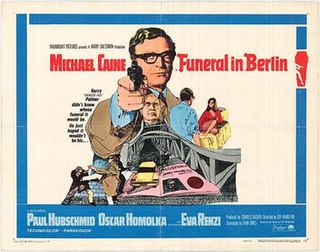
Funeral in Berlin is a 1966 British spy film directed by Guy Hamilton and based on the 1964 novel of the same name by Len Deighton. It is the second of three 1960s films starring Michael Caine as the character Harry Palmer that followed the characters from the initial film, The Ipcress File (1965). The third film was Billion Dollar Brain (1967).

Out of the Hitler Time is a trilogy of semi-autobiographical novels by Judith Kerr for children and young adults.
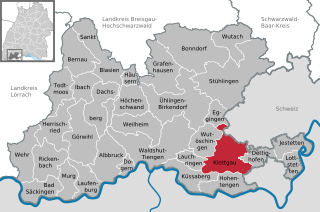
Klettgau is a municipality in the district of Waldshut in Baden-Württemberg, Germany. It is the centre of the Klettgau historical region stretching across the Swiss border into the cantons of Aargau, Schaffhausen and Zürich.

Shining Through is a 1992 American World War II drama film which was released to United States cinemas on January 31, 1992, written and directed by David Seltzer and starring Michael Douglas and Melanie Griffith, with Liam Neeson, Joely Richardson and John Gielgud in supporting roles. It is based on the novel of the same name by Susan Isaacs. The original music score was composed by Michael Kamen.
Wunschkonzert is a 1940 German drama propaganda film by Eduard von Borsody. After Die große Liebe, it was the most popular film of wartime Germany, reaching the second highest gross.
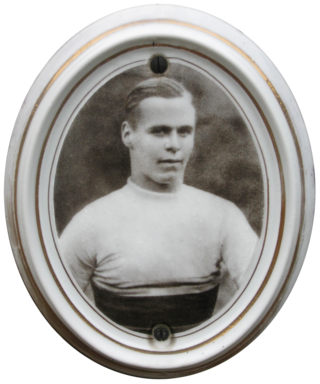
Albert Richter was a German cyclist who won the world sprint championship. He was taken from a train by the Gestapo and never seen alive again.
Angels of Iron is a 1981 German crime film directed by Thomas Brasch. It was entered into the 1981 Cannes Film Festival, but did not win at Cannes. Director Thomas Brasch won the Bavarian Film Award for Best Direction.

So Ends Our Night is a 1941 American drama film directed by John Cromwell and starring Fredric March, Margaret Sullavan and Glenn Ford. The screenplay was adapted by Talbot Jennings from the novel Flotsam by German exile Erich Maria Remarque, who rose to international fame for his first novel, All Quiet on the Western Front.
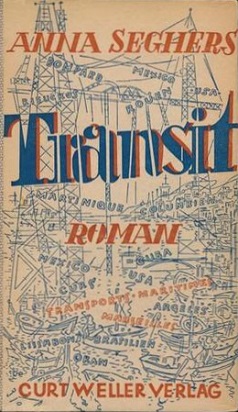
Transit is a novel by German writer Anna Seghers, set in Vichy Marseilles after France fell to Nazi Germany. Written in German, it was published in English in 1944, and has also been translated into other languages.
Paul Karl Heinrich Klinksik was a German stage and film actor who also worked in radio drama and soundtrack dubbing.

Akte Grüninger is a Swiss-Austrian feature film produced in 2013 for the Swiss television SRF. The television film focuses on events in late summer 1938, when Paul Grüninger saved the lives of up to 3,600 Jewish refugees from Germany and Austria by pre-dating their visas, enabling them to migrate 'illegally' to Switzerland.

Don't Ask My Heart is a 1952 West German drama film directed by Paul Martin and starring Willy Birgel, Heidemarie Hatheyer and Maria Holst. It was shot at the Tempelhof Studios in West Berlin. The film's sets were designed by the art directors Hans Jürgen Kiebach and Gabriel Pellon
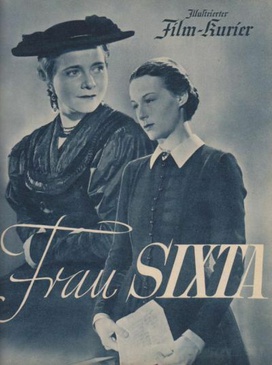
Frau Sixta is a 1938 German historical drama film directed by Gustav Ucicky and starring Gustav Fröhlich, Franziska Kinz and Ilse Werner. It is based on the 1925 novel of the same title by the Swiss writer Ernst Zahn.
References
- ↑ "8th Berlin International Film Festival 1958". Film Affinity. Retrieved 22 December 2013.